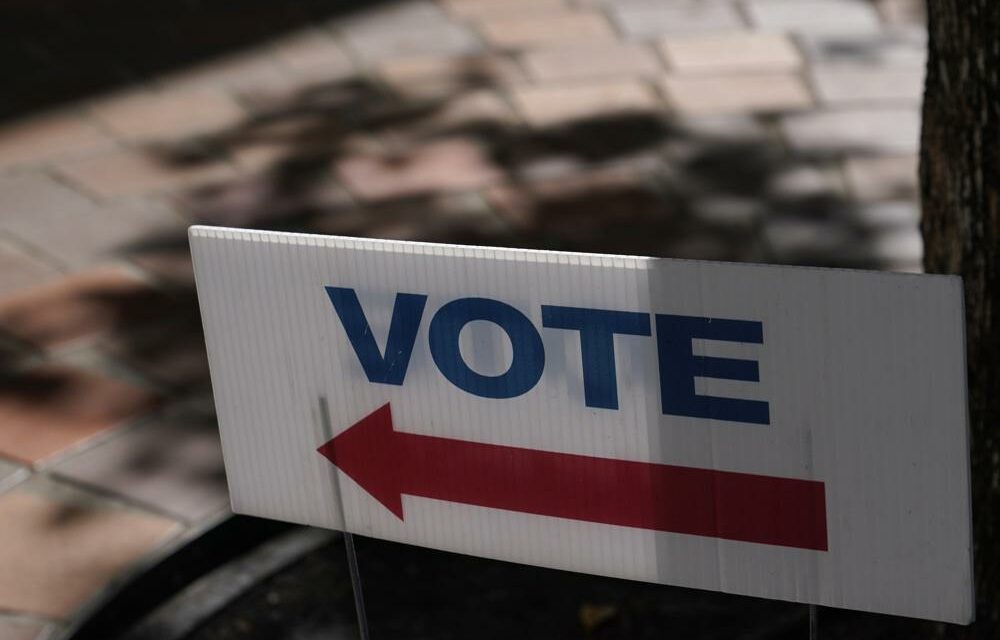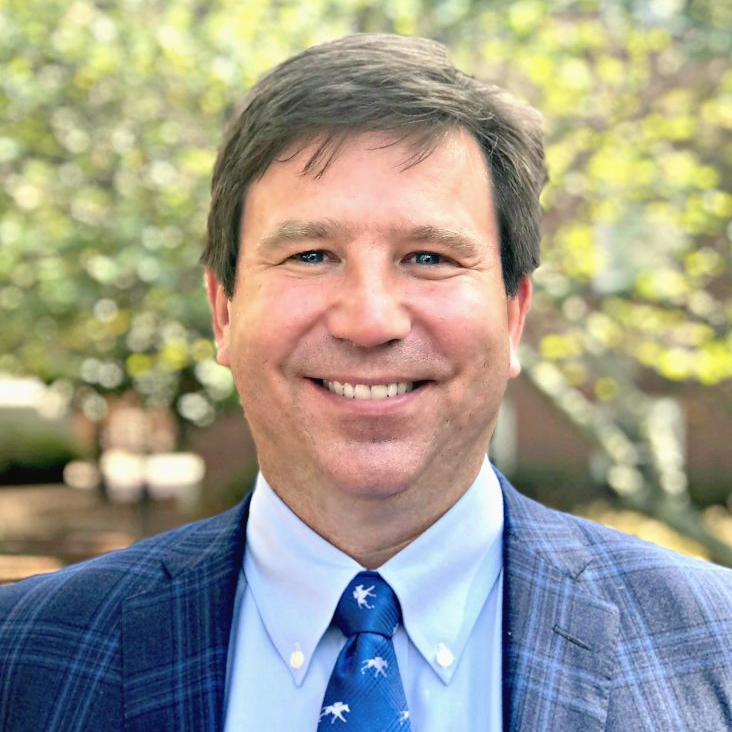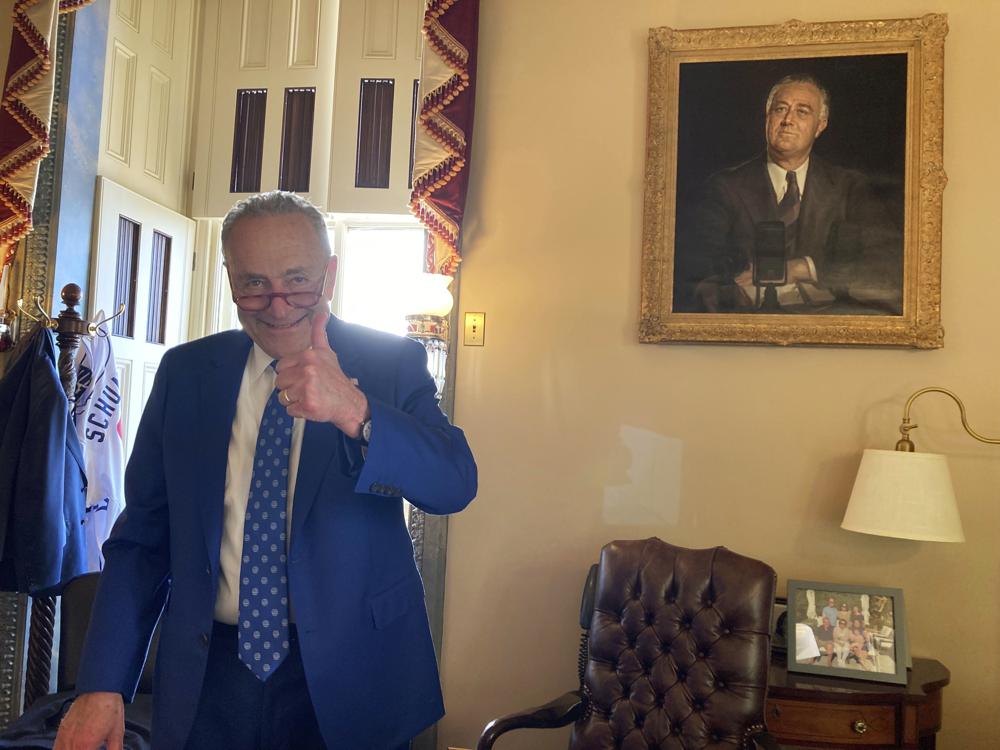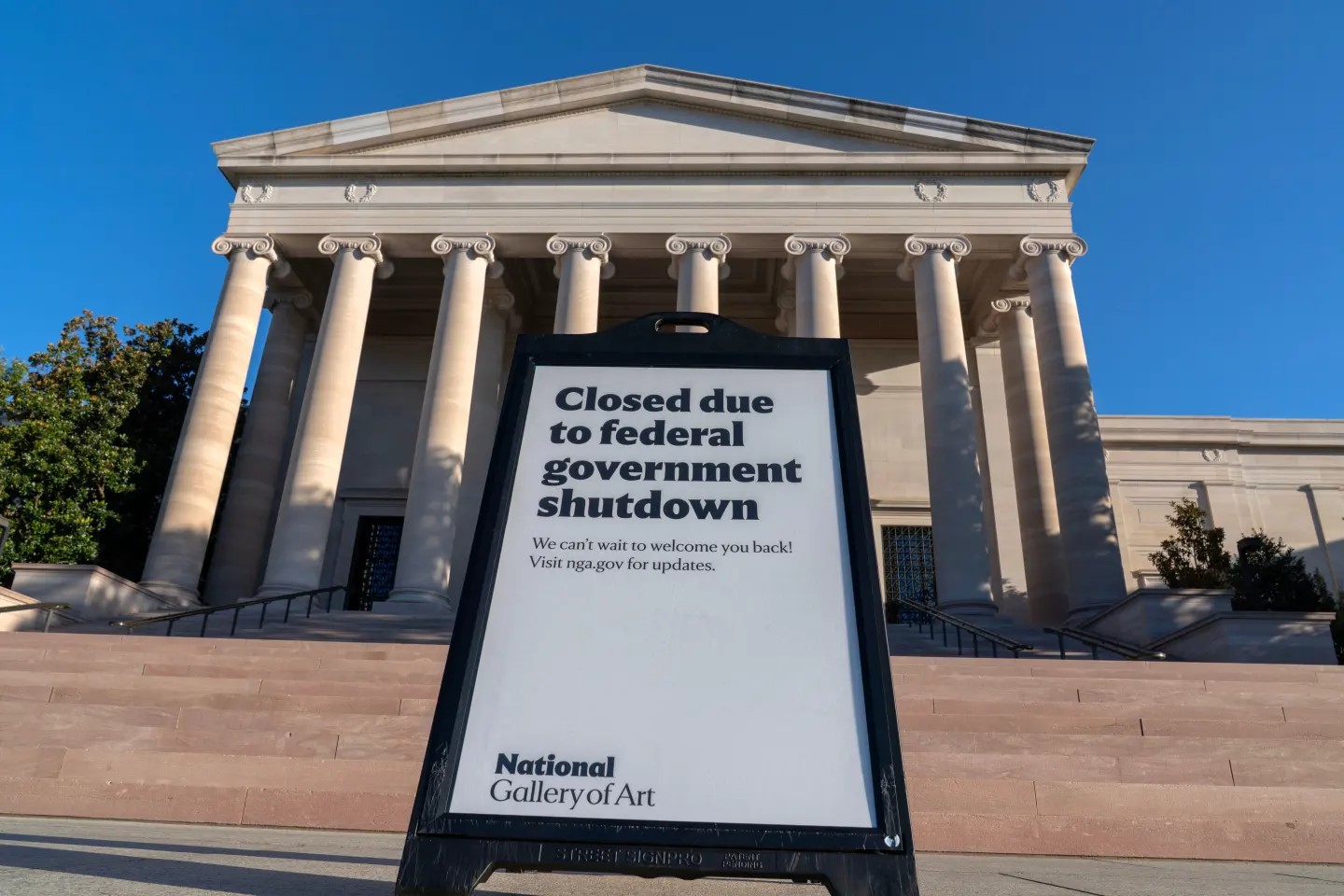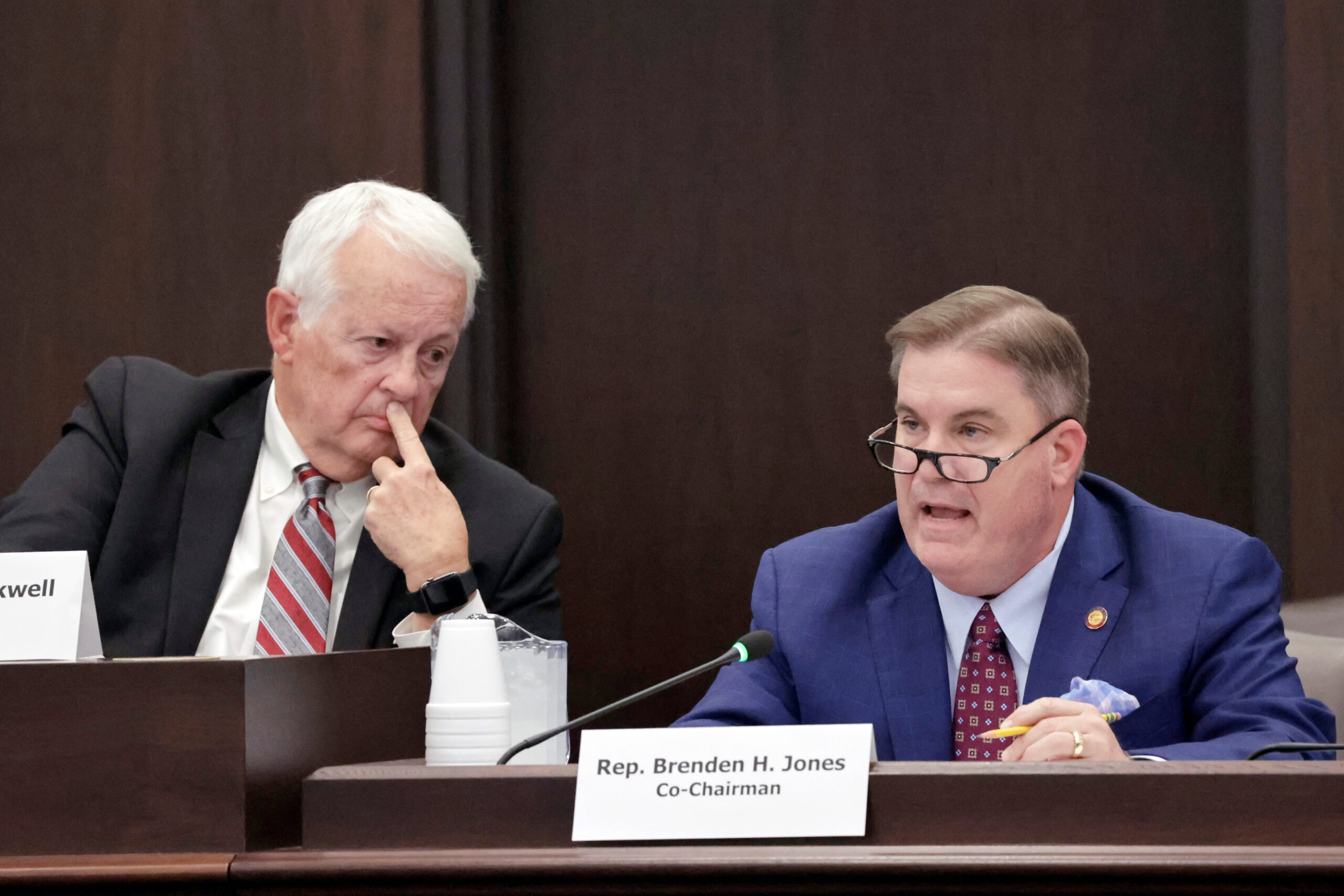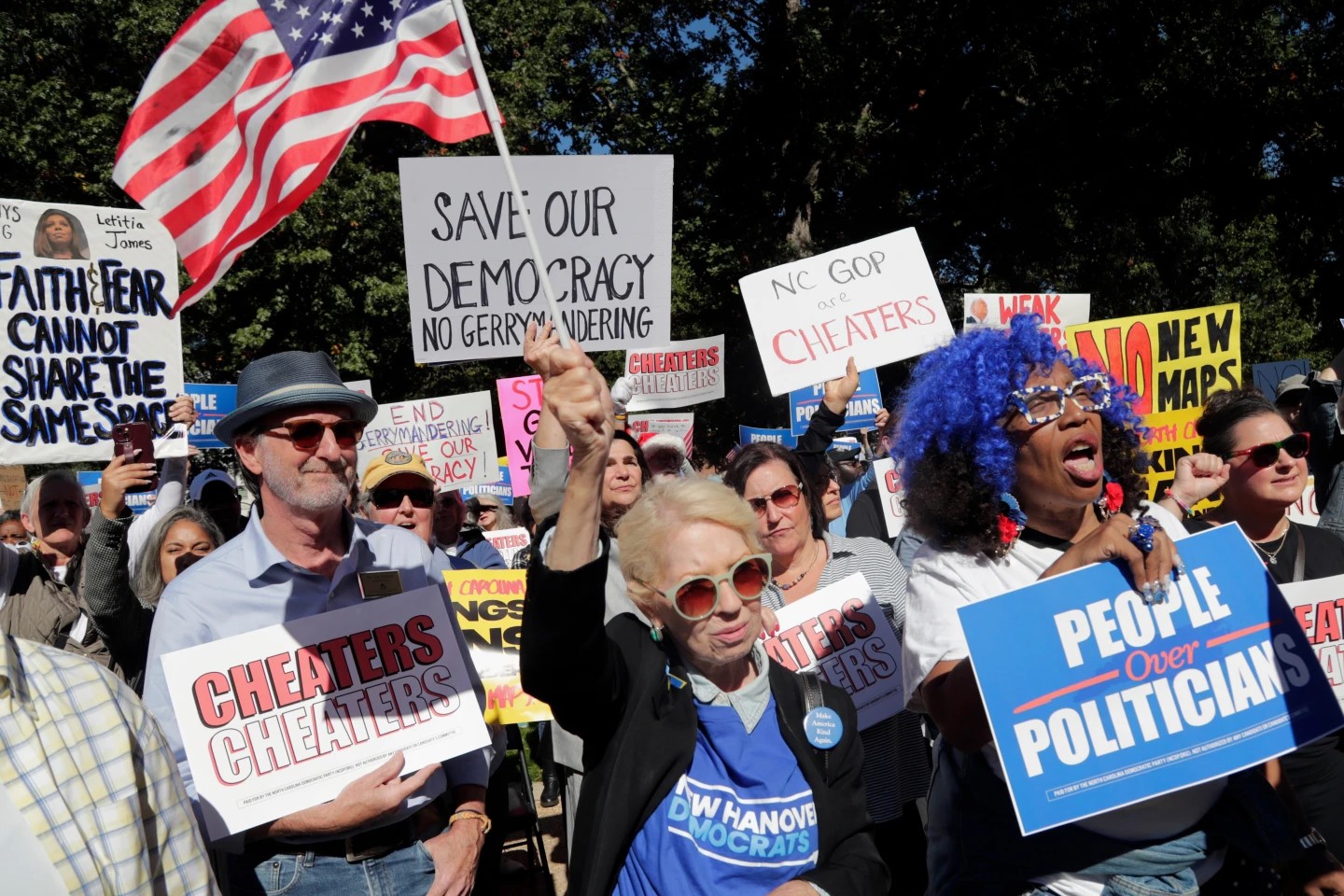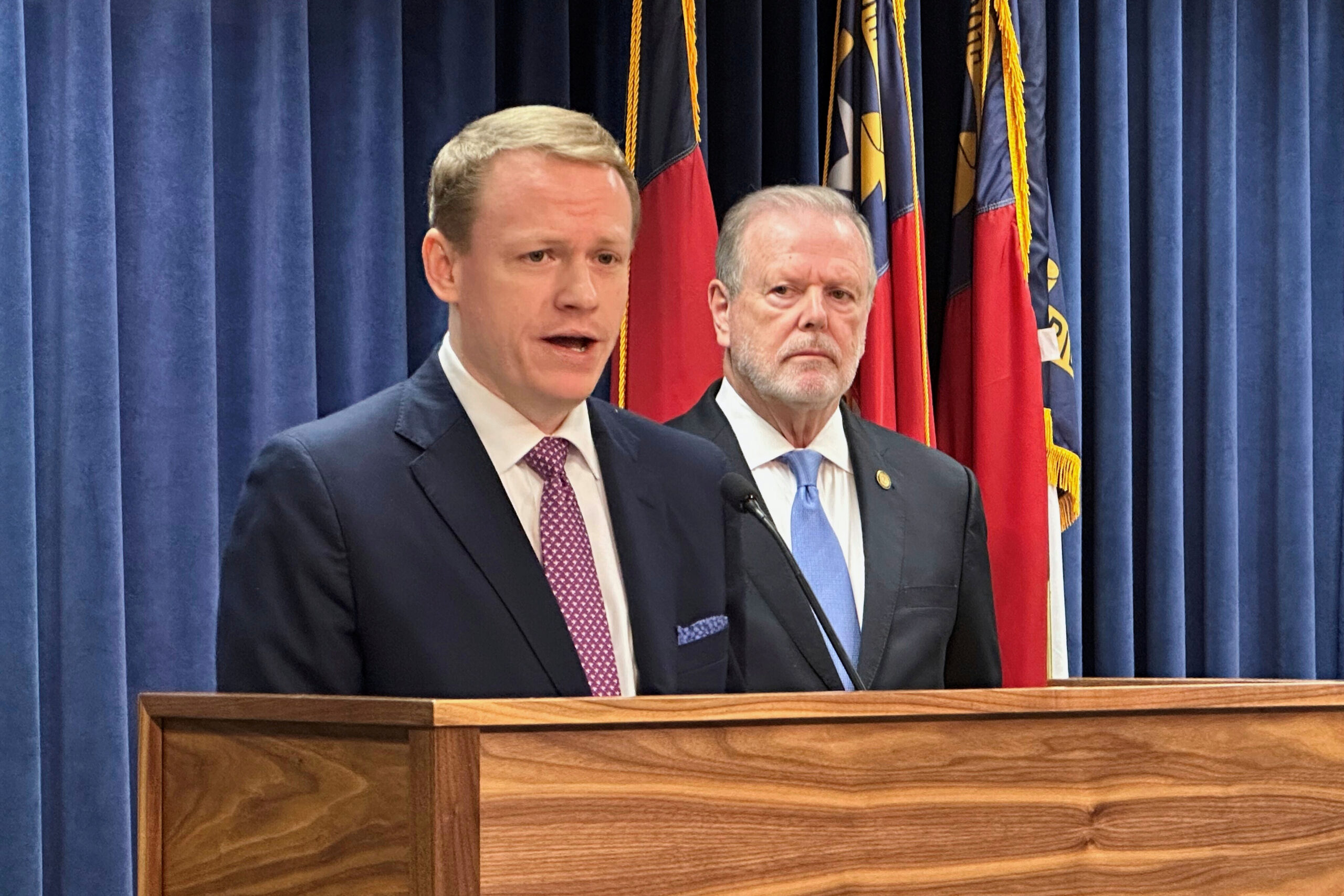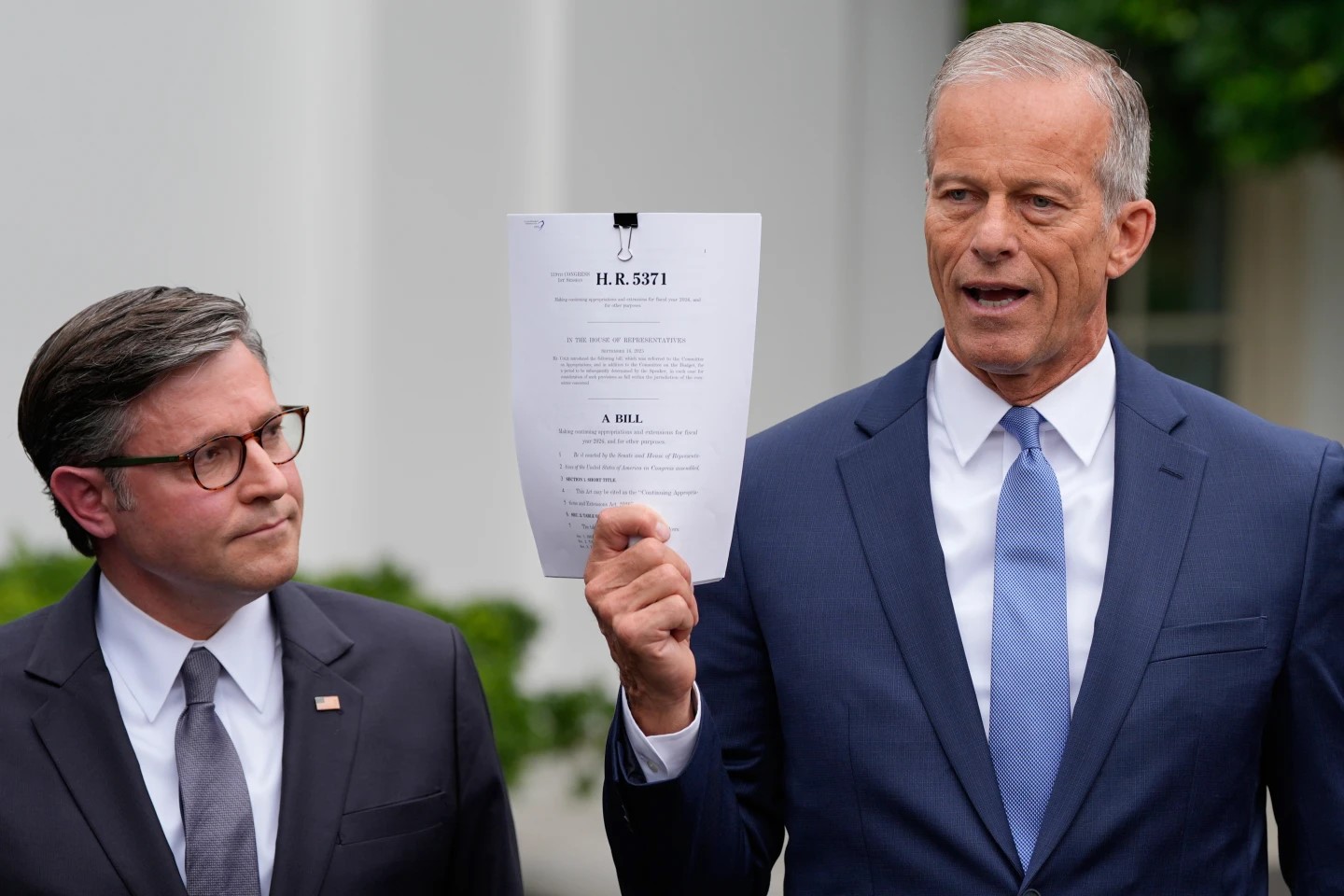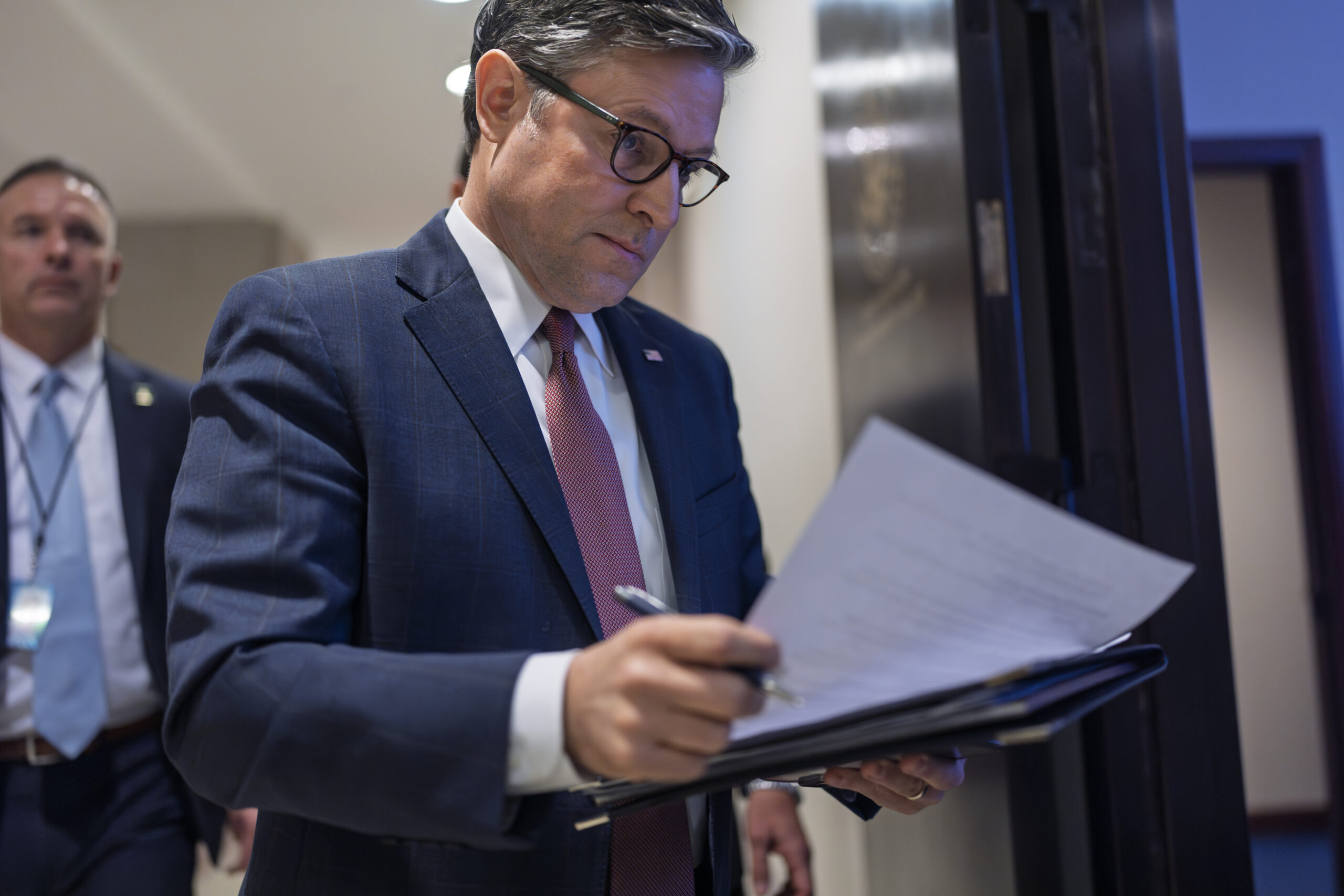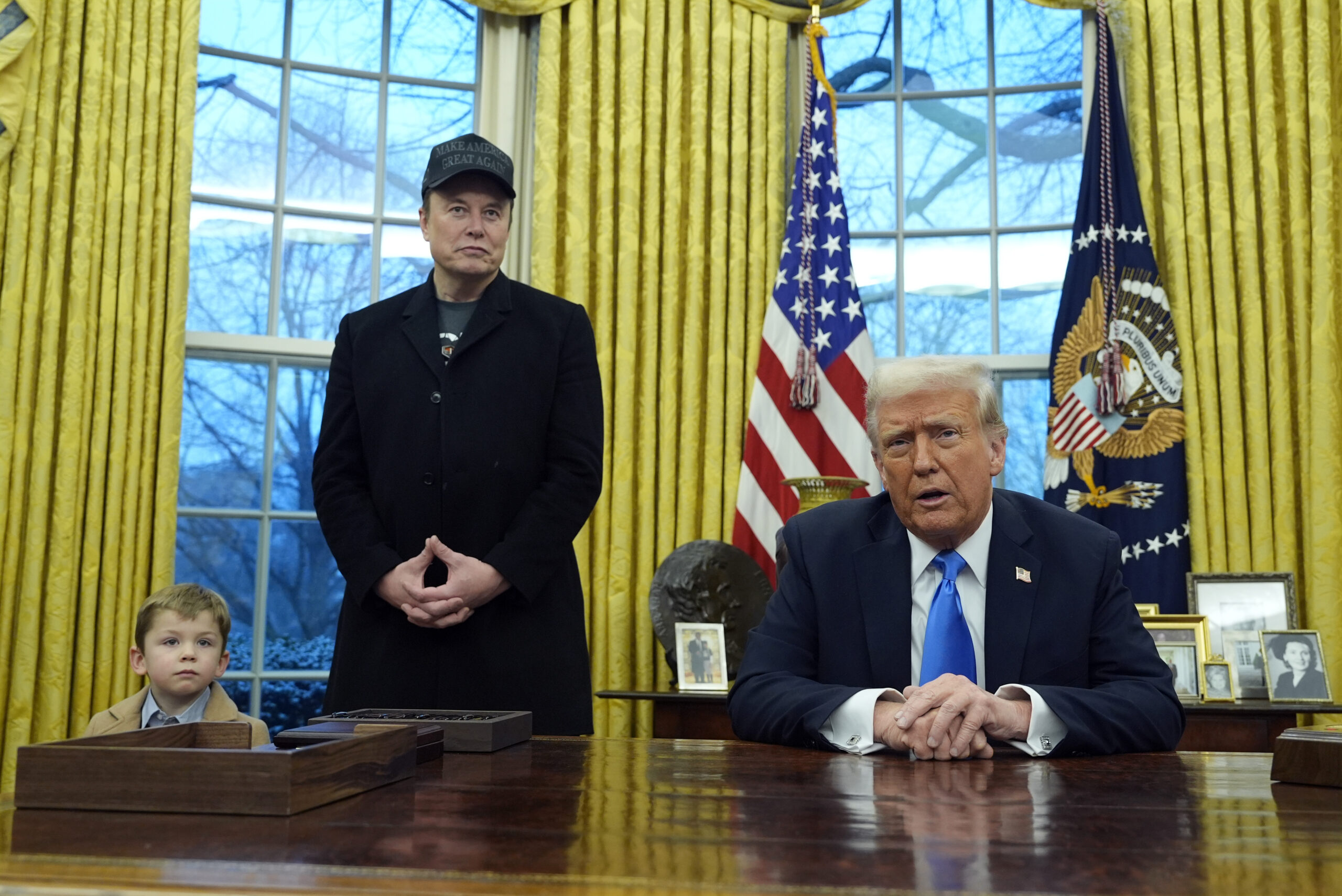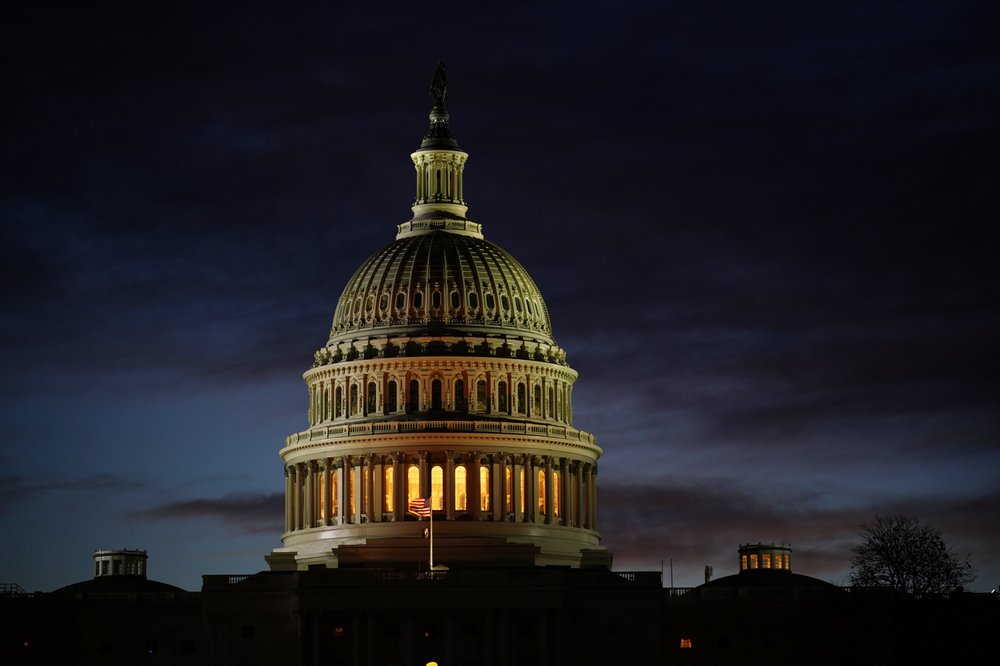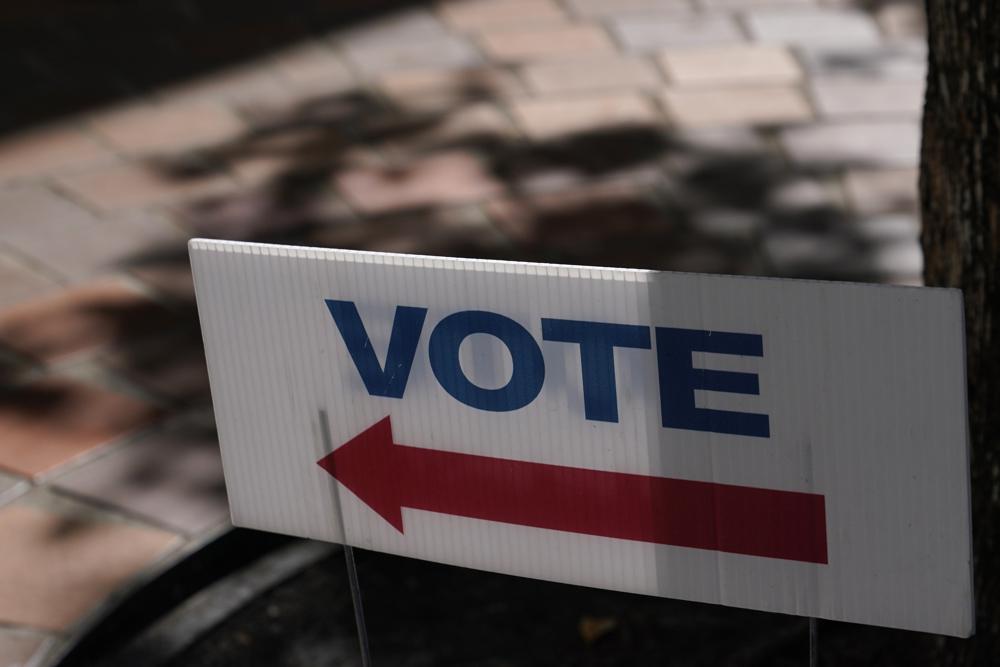As North Carolina transitions from primary election season to general election season, most observers anticipate another frustrating and divisive campaign. 97.9 The Hill’s Brighton McConnell recently spoke with UNC Distinguished Professor of Political Science Marc Hetherington about what to expect in the upcoming general election. Below is a transcript of their conversation, lightly edited for clarity.
Click here to listen to their full conversation.
Brighton McConnell: What is the sense that you get of how polarized the Democratic and Republican parties are now compared to four years ago? Again, not a whole lot of action when you look at the people running in the primaries, but certainly a lot of action within both the Democratic Party and the Republican Party on the national level right now.
Marc Hetherington: Oh, for sure. One of the things that you mentioned is the presidential race is basically a done deal. This is kind of an interesting moment because it means that neither side really needs to moderate itself to get ready for the general election. Everybody’s going full bore already in attacking the other side. And so, with this in mind, 2020 was bad. As far as polarization was concerned, we haven’t had an election like this since the late 18 hundreds. The feelings were quite the strong. I predict that 2024 is even gonna be worse. Iit’s setting up to be just like any second fight, a lot of anticipation and a lot of bad feelings left over from last time around.
McConnell: It’s hard to believe that it could get much worse because I think of how we remember 2020. Of course there were tons of context there with COVID-19, that’s not quite as much of an issue anymore… but it certainly feels like there’s been even more erosion of trust, both in the parties and of people then attacking the other side. There’s been an erosion of ways to communicate and contribute to everything. For example, as a journalist, Twitter is a big part of my daily life and our profession, and that certainly is not what it was back in 2020 with the changes there. It feels like there’s even more insulated discourse around this before, and then that’s not even getting into artificial intelligence and that making it feel like you can’t really trust what you see anymore… and that’s not even getting into the policy and the actions of the two parties.
Hetherington: For sure. You know, even just in these last couple of years in politics [we see it], or probably more to the point what’s not going on in Congress. We’re having a congressional session where fewer than 10 pieces of legislation of any consequence have been passed. In order to pass legislation, Republicans and Democrats have to find some way to work with each other at least a little bit. With one chamber in Democratic hands, one in Republican hands, certain compromises are gonna have to be made to get anything done. And of course, they’re not getting done, which points up just how unable the two sides are to find common ground on anything. Instead of solving problems, they’re just using these issues to try to create advantage for themselves in the next election by not solving problems. They’re gonna point at the other side and say, “Hey, look, we haven’t solved immigration. That’s your fault.” Even though one of, or both of, the sides are choosing not to solve the immigration. So it’s just a mess at that level.
In terms of governing… I agree with you, one of the things that is happening in the world outside of Congress is Republicans and Democrats increasingly living in different worlds. We don’t pay attention to the same media. We don’t participate in the same social media. And as a result, when you live in two different realities, it’s very difficult to find middle ground and agree on much of anything.
McConnell: You mentioned this being kind of the most contentious election since the 1800s. Can you share some more context around that? What election is it that you’re referring to, and what kind of parallels are you seeing right now?
Hetherington: Well, the thing about these elections from the late 1800s, from 1876 up until 1892, the electoral college map was exactly the same every single election… with the exception of sometimes New York voted one way and sometimes New York voted the other way, and that always made the difference in the outcome of the election. We have a similar situation where going back to even 2000, the first George W. Bush election where he defeated Al Gore by 500 something votes in Florida, the electoral college map just barely changes from year to year. Trump won narrowly in 2016. He lost a few of the states that he won in 2016, like Pennsylvania, Wisconsin, Michigan, and a couple of others. And then Biden is the president, and just like in the late 1800s, it’s gonna be just a tiny, tiny handful of of states that determine who’s gonna win again. In this sense, we’re frozen in place. 40 of the 50 states are simply not competitive at all. And four more are barely competitive at all. So, we’re just kind looking at about six states, just like we used to when the two sides were just frozen in place.
McConnell: I imagine that the divisiveness and how it trickles down to the state levels… North Carolina is probably a great example of that, right? It’s purple in terms of its population [and voting tendencies], but in terms of how the state government is run, and then how redistricting makes it, it is now no longer competitive because the party in power looks to stay in power. That’s I think, one clear example of how it affects things at the state and local levels. What are some other ways that jump out to you that this this polarization then trickles its way down?
Hetherington: Well, one of the things that I think polarization does is it causes people on one side to look at the other side and say, look, I don’t even understand you. I don’t have anything in common with you. I don’t trust you. You don’t think about the world the same way that I do. And under circumstances like that, it makes sense to try to provide that other side that seems so dangerous to you with as little influence as you possibly can. You know, 30, 40, 50 years ago Republicans and Democrats just didn’t seem like different people, they had more in common. Maybe they had disagreements about how big the government ought to be, but, those were the types of things that they could compromise on and, and work through. That’s the thing that’s really changed over these last especially 15 or 20 years.
And so what you see is at the state level — places like North Carolina, places like New York, places like Wisconsin — they’re making changes to the rules in the middle of the process to try to freeze the other side out of any influence in the process. And, boy, these are the types of things that are really difficult to recover from. When we think about democracy, changing rules in the middle of the game this is the kind of thing that doesn’t seem like it has much history here. It seems to have more history in places like the third world.
McConnell: Along those lines, what kind of things concern you having studied this? What kind of things concern you moving forward with? Just like the country’s ability to function? You mentioned how little action there is in Congress.
Hetherington: The worry for me more than anything is when you come to dislike your opponents you just wish the worst for them, right? I always encourage my students to think about this like a basketball rivalry, like the Duke versus North Carolina rivalry. The kids at UNC, of course, they hope for the worst to happen to the Blue Devils on any given week, but there’s no downside to rooting against the team. Politics is different. When the other side is in power, your side’s out. The other side is in power. If you’re rooting against the other party, you’re rooting against the country, in a sense, and we’re not necessarily thinking about ourselves as all on the same American team any longer. We want to see our political opponents fail when they’re in charge so that we can be in charge again. And that strikes me as being something that’s quite new and quite concerning.
The other thing that worries me is this sort of seeming turn towards the acceptance of political violence opponents. We’re seeing big increases in that, with January 6th being the most obvious example of outright political violence that a fair chunk of people seem just okay with. So again these two things are, are pieces that make me feel like I’m 55 years old, and it feels like I’m living in a different country than the one I grew up in.
McConnell: Two questions for you. And they’re, they’re kind of doozies. The first part is just how bad do you think is it going to be as we ramp up to the general election in November? And the other one too, as you kind of alluded to, is this going to be the new normal going forward, or is it just the current state of the parties kind of reacting to each other?
Hetherington: I’ll take the second one first. We’ve been dealing with a ratcheting up of this sort of polarized normal for the last 20 years, right? One of the reasons is we’re basically tied. This has been basically a 50-50 political world with a couple of small exceptions since the 2000 election, which was basically tied, and so is 2004, and so is 2012, and so is 16, and so is 20. When two teams are really closely matched, Duke and UNC are both top 10 teams now, that ratchets up the feelings and the hatred and the emotions that go along with things. This is so until elections are not so close, where the Senate is 51 49 and the House is divided by five or six seats. And of course, the presidential election could end up 271 to 269 electoral votes, depending upon a couple of flips in the votes. I mean, oh my gosh, can you get any closer than that? This is like the worst emotions associated with the last minute of a tied basketball game between two top five teams. So that’s not gonna change.
And then you add to that the fact that the parties really disagree with each other on things. It’s not like the parties are just really close together on policies that if the Democrats lose and the Republicans win that it’s really not gonna make much difference. It’s gonna make a profound difference. And so, you look at the other side and you think, man, we gotta do anything that we can possibly do to keep them out of power. And, as you made reference to a little bit earlier, the use of AI and deep fakes and things along these lines, we can’t even anticipate . Right? Just how strange this particular election is going to be. And the levels that people are going to be willing to go to in order to ensure that their side wins, because the view of the other side winning is such a disaster. So… buckle up.
Featured photo via AP Photo/Lynn Sladky.
Chapelboro.com does not charge subscription fees, and you can directly support our efforts in local journalism here. Want more of what you see on Chapelboro? Let us bring free local news and community information to you by signing up for our newsletter.

